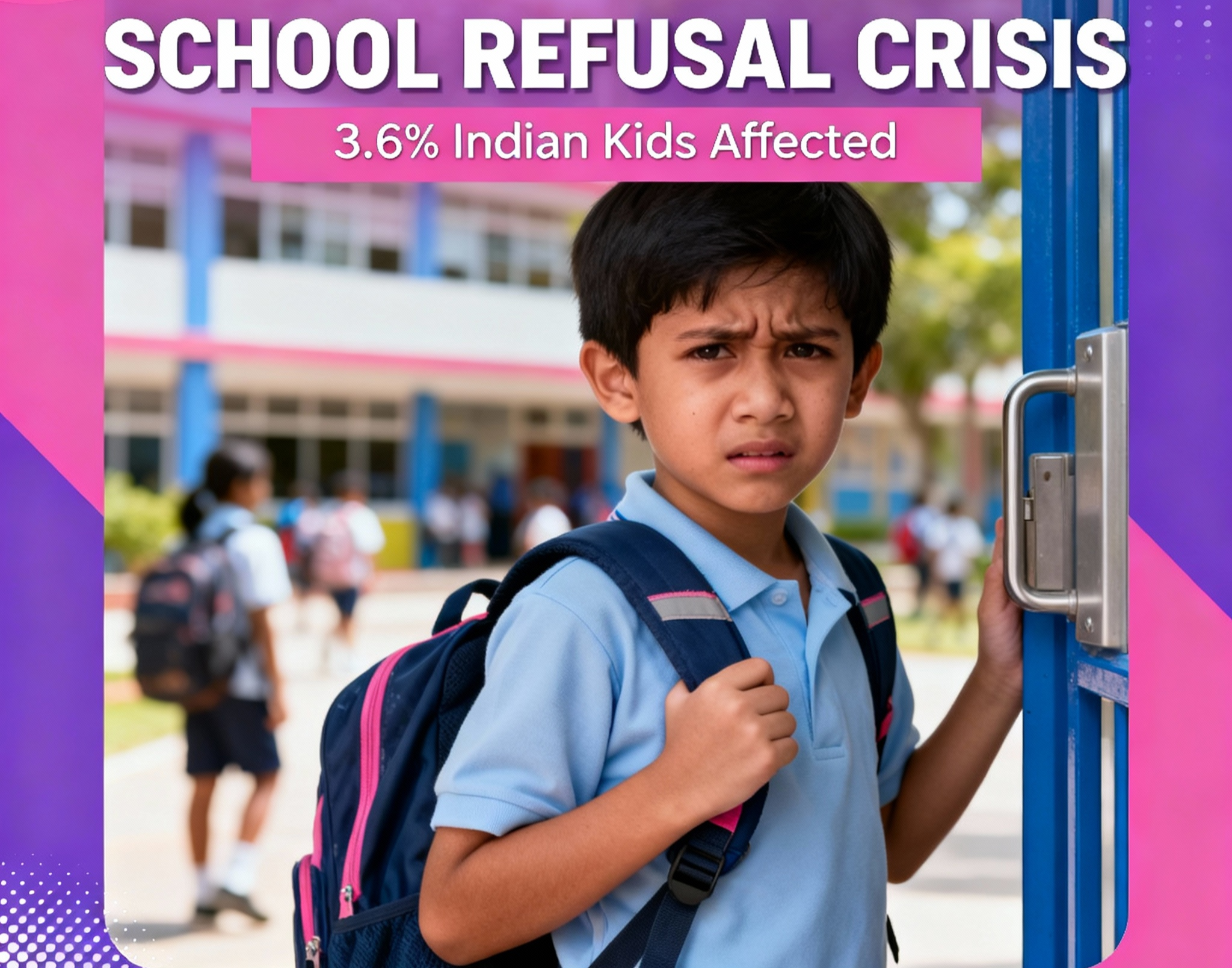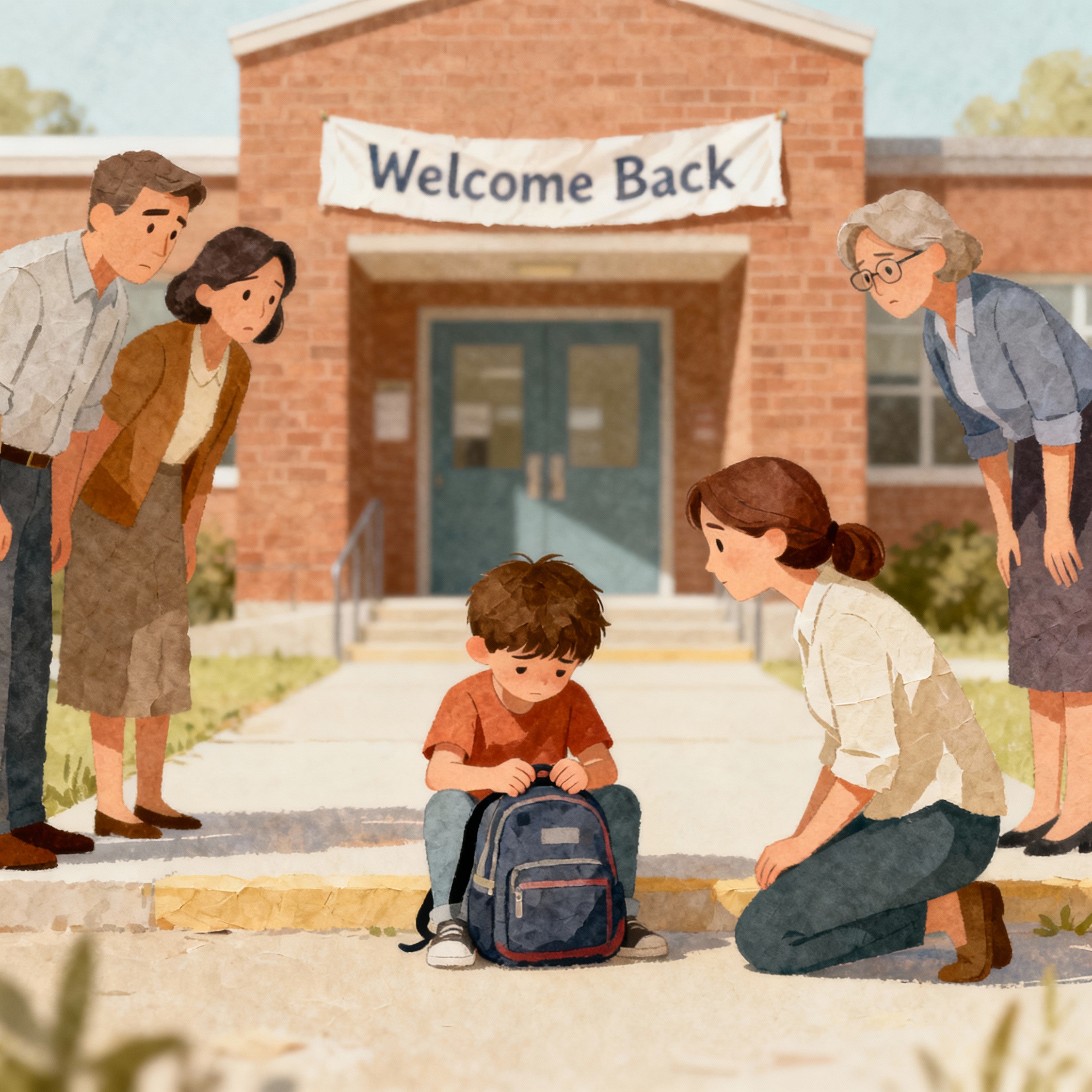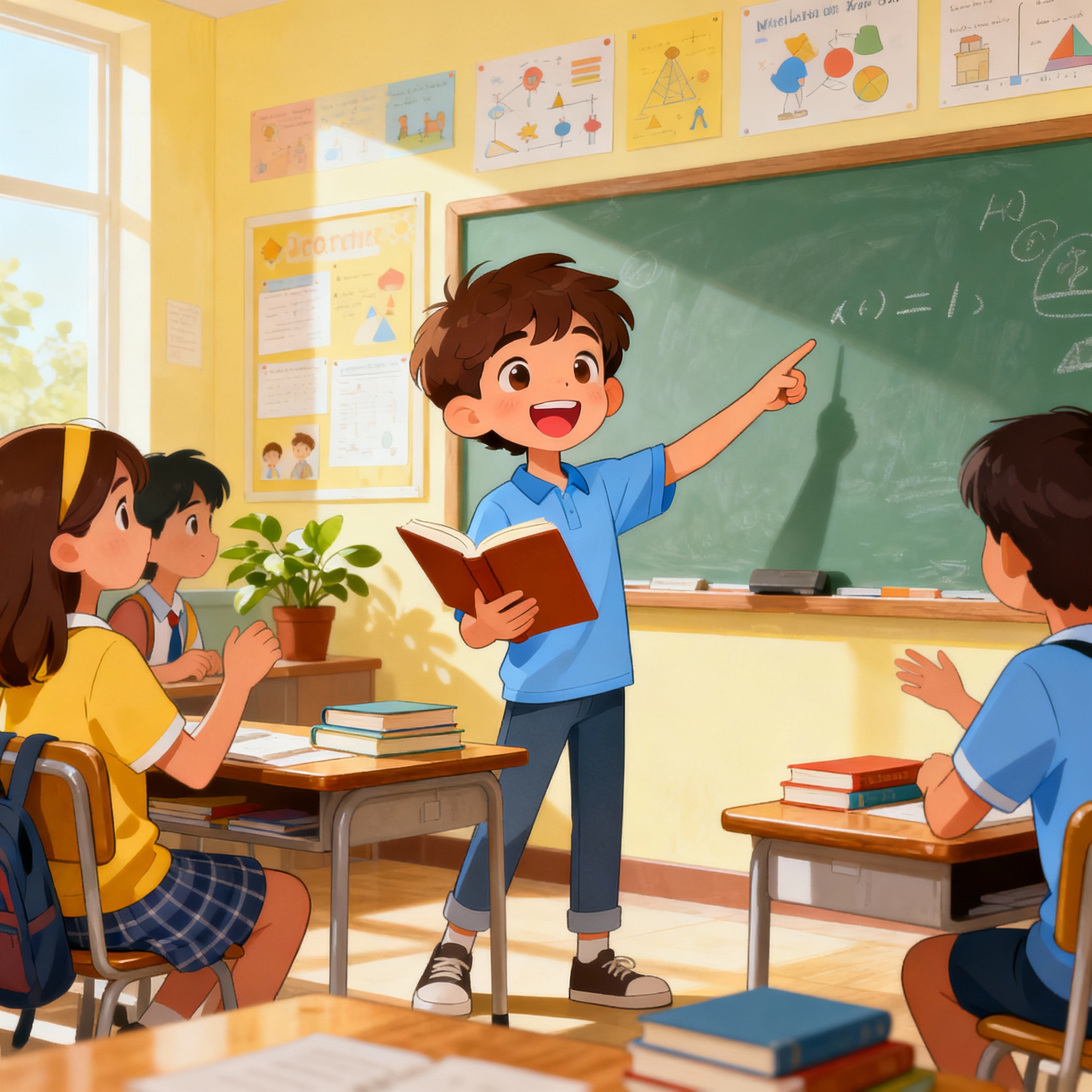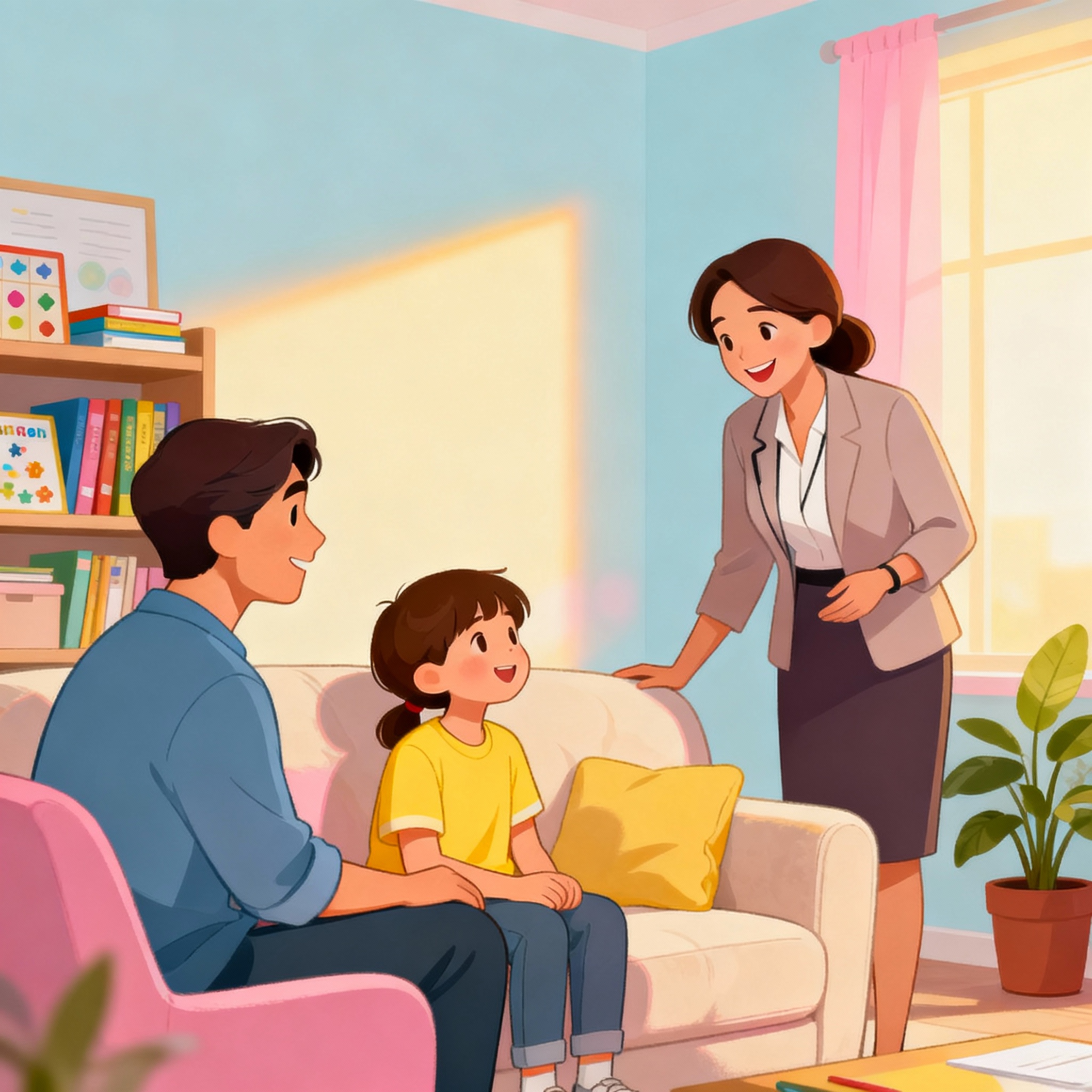School Refusal Crisis: 3.6% Indian Kids Refuse School (2025)

School refusal anxiety affecting 3.6% Indian kids with 77.8% psychiatric issues. Post-COVID crisis. Expert solutions, recovery timeline, when to seek professional help now.
School Refusal Crisis: 3.6% Indian Kids Refuse School
Is your child terrified to go to school? You’re not alone. 3.6% of Indian children experience school refusal, with 77.8% having psychiatric comorbidities. Post-COVID surge: expert solutions, recovery timeline & when to seek professional help.

School refusal affects millions of children – it’s a real mental health issue requiring professional intervention
What Is School Refusal & Why It’s a Mental Health Crisis
Last Updated: November 2025 | School refusal (also called school phobia or separation anxiety disorder) is defined as a child’s extreme anxiety, panic, or distress when attending school, leading to consistent avoidance. It’s NOT truancy (willful disobedience). It’s NOT laziness. It’s a legitimate mental health disorder affecting 1-5% of children globally and 3.6% specifically in India.
Recent research from the Indian Academy of Pediatrics (2024-2025) reveals that 77.8% of children with school refusal have psychiatric comorbidities—meaning they simultaneously experience depression (26.7%), anxiety disorders (17.7%), ADHD, or other mental health conditions.
🚨 Critical Facts Parents Must Know:
- Post-COVID Surge: School refusal cases tripled after pandemic (2020-2025)
- Not Parental Failure: This is neurobiology—not a character flaw or discipline issue
- Peak Age: 9-13 Years: Academic pressure + social anxiety spike during transition
- 77.8% Have Comorbidities: Depression, anxiety, ADHD often co-exist
- Untreated = Worsening: Without intervention, refusal becomes habitual and harder to reverse
- Recovery IS Possible: With proper therapeutic support, 85%+ of children return to regular school attendance
📊 Root Causes & Triggers (Classified)
School refusal isn’t one-size-fits-all. Research identifies these root causes:
- Separation Anxiety (38%): Fear of parental separation, catastrophizing about harm
- Social Anxiety (32%): Fear of peer judgment, bullying, rejection
- Academic Anxiety (18%): Fear of failure, testing, teacher criticism
- Panic Disorder (12%): Physical symptoms (stomach aches, nausea) triggered by school
- Generalized Anxiety (8%): Excessive worry about multiple aspects
🔍 Is It School Refusal or Just Regular Resistance?
Key Differences:
- Mild Resistance: “I don’t feel like going today” but goes when prompted
- School Refusal: Extreme distress, physical symptoms, refused despite consequences, parental intervention needed

With proper intervention, children recover and rediscover joy in learning
How School Refusal Affects Child & Family
School refusal doesn’t just impact school attendance—it ripples through every aspect of family life:
Academic Decline
Gaps in learning, dropped grades, difficulty catching up. Missed instruction compounds over time.
Social Isolation
Missing peer interaction, reduced friendships, feeling “different” from classmates.
Mental Health Worsening
Untreated anxiety → depression. School avoidance reinforces fear, making it progressively worse.
Family Stress
Parent burnout, marital conflict, sibling resentment. Entire family becomes destabilized.
Parental Work Impact
Missing work repeatedly, job performance suffers, income/career advancement at risk.
Long-Term Prognosis
Without intervention: Chronic absenteeism, school dropout, limited future opportunities.
⚠️ The Vicious Cycle (If Untreated):
Day 1: Child refuses school (anxiety high) → Parent reluctantly keeps home
Day 2-5: Child feels relief (anxiety REDUCES), reinforces avoidance behavior
Week 2: Anxiety increases as return date approaches, refusal intensifies
Week 3: Child has lost 15+ school days, anxiety SKYROCKETS due to guilt + academic pressure
Month 2+: Pattern becomes entrenched, child believes “I can’t go to school,” other phobias develop
💥 CRISIS: Without intervention here, child may never return to regular school.
🎯 Does Your Child Have School Refusal?
Take this 5-minute clinical screening (not a diagnosis, for reference only)
How to Help Your Child Return to School (9 Proven Strategies)
1. Professional Assessment (URGENT)
Schedule appointment with child psychologist or psychiatrist. Rule out anxiety disorder, depression, ADHD. Proper diagnosis = proper treatment.
2. Cognitive Behavioral Therapy (CBT)
Gold-standard treatment for school refusal. CBT addresses anxious thoughts, teaches coping strategies, gradual exposure to feared situation.
3. Parent-Child Communication
Validate anxiety (“I know you’re scared”), express non-negotiable expectation (“You will go to school”), offer support (“I’m with you”).
4. Structured Reintegration Plan
Gradual return (start with 1 hour/day, increase weekly). Set specific, achievable goals. Celebrate small wins daily.
5. School Coordination
Inform school of situation. Designate a safe adult in school (counselor, teacher). Coordinate with professionals.
6. Build Coping Skills
Teach breathing exercises, grounding techniques, positive self-talk. Practice these skills BEFORE school morning.
7. Healthy Routine
Consistent sleep (9 hours), nutritious breakfast, limited screen time. Physical health impacts mental health directly.
8. Avoid Reinforcing Avoidance
Don’t keep child home “just this once.” Avoidance intensifies anxiety. Consistency is CRITICAL.
9. Medication If Needed
Psychiatrist may recommend SSRIs (anxiety medication) for short-term support during therapy. Not a permanent solution.
💚 Real Recovery Story:
“Arjun, age 11, refused school for 4 months post-COVID. Severe separation anxiety, panic attacks. Parents thought he’d drop out. We started CBT (2x/week), school coordinator assigned, gradual reintegration: Week 1 = 1 hour/day, Week 2 = 2 hours, Week 4 = full day. Took 8 weeks total. Now, 6 months later, Arjun is back full-time, anxiety controlled with techniques learned. Parents say the key was: professional help + consistency + NOT giving in to his refusal.”
— Case Study from Kideos Station Parent Support Group
⏱️ Realistic Recovery Timeline
With professional intervention:
- Weeks 1-2: Assessment, starting therapy, basic coping skills
- Weeks 3-6: Noticeable anxiety reduction, partial school return
- Weeks 7-12: Full-time return, independent management of symptoms
- Months 4-6: Reinforcement, preventing relapse, building confidence
🚨 RED FLAGS: When School Refusal Is Critical
- Chronic absenteeism (>30% school days missed)
- Suicidal thoughts or self-harm mention
- Co-occurring depression or substance use
- Multiple failed return attempts
- Family crisis (divorce, moving, loss)

Professional support including therapy, family communication, and school coordination is essential for recovery
What Latest Studies Show (2024-2025)
📊 Key Research Findings:
- IAP Study (2024): 3.6% of Indian school-age children experience school refusal
- Psychiatric Comorbidities (2025): 77.8% of school-refusing children have concurrent mental health disorders
- Post-COVID Impact: School refusal cases increased 300% post-pandemic (2020-2024)
- CBT Efficacy: 85-90% of children return to full school attendance with professional therapy
- Peak Age Finding: 9-13 years is critical window (academic pressure + social anxiety peak)
- Early Intervention: Children treated within 3 months of onset have 95% recovery rate vs 60% if delayed
Expert Quote (Indian Academy of Pediatrics): “School refusal is a psychiatric emergency requiring immediate professional intervention. Every week of delay increases likelihood of long-term complications. Parents must recognize this is NOT a discipline issue—it’s a medical condition.”
🌟 Your Child Deserves to Feel Safe at School
Join Kideos Station’s supportive community of 100,000+ parents. Get expert resources, success stories, and professional guidance for managing school refusal & anxiety.
Access Mental Health Resources → Book Expert Consultation →✨ Kideos Station – Supporting Indian Families with Science-Based Mental Health Solutions
💡 Final Key Takeaways
🎯 Remember:
- School refusal is REAL: A psychiatric condition, not disobedience or laziness
- 3.6% of Indian kids affected, 77.8% have psychiatric comorbidities
- Post-COVID crisis: Cases tripled since 2020—it’s happening NOW
- Early intervention IS critical: Treated within 3 months = 95% recovery vs delayed = 60%
- Professional help WORKS: CBT + family support = 85-90% full school return
- Avoid reinforcing avoidance: Consistency is non-negotiable
- Recovery takes time: 8-12 weeks for significant improvement with proper treatment
- You’re not alone: Thousands of Indian families facing this—support exists
Your child’s anxiety is valid AND treatable. With proper professional support, structured reintegration, and family commitment, recovery is absolutely possible. Don’t wait—every week of delay makes the problem harder to solve.
Take action TODAY: Book a consultation with a child psychologist, coordinate with school, and start your child’s journey back to confident, happy school attendance.
For parent support groups, expert resources, and community guidance, visit Kideos Station – India’s most trusted parenting support platform with 100,000+ families! 🌈

